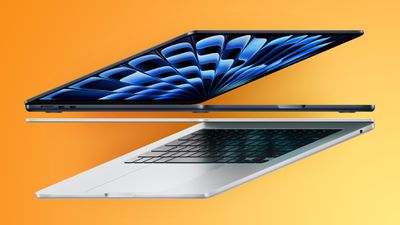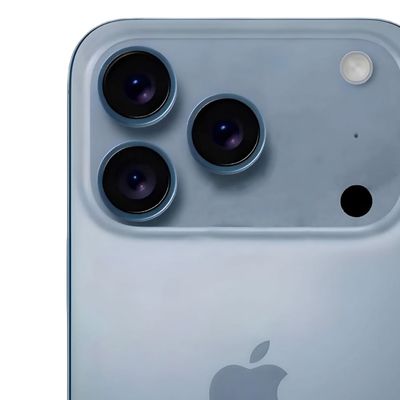M3 MacBook Air Models Now Arriving to Customers in New Zealand and Australia
It is Friday, March 8 in New Zealand and Australia, which means customers who pre-ordered one of the new machines in those two countries are receiving their MacBook Air models.

Introduced on Monday of this week, the updated 13.6-inch and 15.3-inch MacBook Air models are equipped with the same M3 chip that was introduced in the MacBook Pro late last year.
There are no external changes to the MacBook Air, with Apple instead focusing on internal updates. The M3 chip is up to 30 percent faster than the M2 chip in terms of CPU performance, and there are notable GPU improvements with Apple adding support for Dynamic Caching, hardware-accelerated ray tracing, hardware-accelerated mesh shading, and support for AV1 decode.
Other improvements to the MacBook Air include support for two external displays when the machine is used in clamshell mode, support for Wi-Fi 6E, enhanced voice clarity for audio and video calls, and a new anodization seal to reduce fingerprints on the Midnight finish.
Apple retail stores in Australia are selling the new MacBook Air machines, and there is plenty of stock for walk-in customers. Apple does not operate stores in New Zealand, so customers in that country need to order online.
Following New Zealand and Australia, sales and deliveries of the new MacBook Air models will launch in Asia, the Middle East, Europe, and finally, North America.
We'll be sharing a hands-on review of the new M3 MacBook Air in the morning after picking up one of the new devices.
Popular Stories
Despite being more than two years old, Apple's AirPods Pro 2 still dominate the premium wireless‑earbud space, thanks to a potent mix of top‑tier audio, class‑leading noise cancellation, and Apple's habit of delivering major new features through software updates. With AirPods Pro 3 widely expected to arrive in 2025, prospective buyers now face a familiar dilemma: snap up the proven...
Apple plans to release an all-new super thin iPhone this year, debuting it alongside the iPhone 17, iPhone 17 Pro, and iPhone 17 Pro Max. We've seen pictures of dummy models, cases, and renders with the design, but Lewis Hilsenteger of Unbox Therapy today showed off newer dummy models that give us a better idea of just how thin the "iPhone 17 Air" will be.
The iPhone 17 Air is expected to be ...
A developer has demonstrated Windows 11 ARM running on an M2 iPad Air using emulation, which has become much easier since the EU's Digital Markets Act (DMA) regulations came into effect.
As spotted by Windows Latest, NTDev shared an instance of the emulation on social media and posted a video on YouTube (embedded below) demonstrating it in action. The achievement relies on new EU regulatory...
Apple's iPhone development roadmap runs several years into the future and the company is continually working with suppliers on several successive iPhone models simultaneously, which is why we often get rumored features months ahead of launch. The iPhone 17 series is no different, and we already have a good idea of what to expect from Apple's 2025 smartphone lineup.
If you skipped the iPhone...
Apple seeded the third beta of iOS 18.5 to developers today, and so far the software update includes only a few minor changes.
The changes are in the Mail and Settings apps.
In the Mail app, you can now easily turn off contact photos directly within the app, by tapping on the circle with three dots in the top-right corner.
In the Settings app, AppleCare+ coverage information is more...
Apple will unveil the iPhone 17 Pro in a new Sky Blue color, the same color that debuted on the latest M4 MacBook Air models Apple released in March. That's according to the leaker Majin Bu.
Concept mockup from Majin Bu
Writing on his website, Bu claims that "sources close to the supply chain confirm that several iPhone 17 Pro prototypes have been made in various colors, with Sky Blue...
While the iPhone 17 Pro and iPhone 17 Pro Max are not expected to launch until September, there are already plenty of rumors about the devices.
Below, we recap key changes rumored for the iPhone 17 Pro models as of April 2025:
Aluminum frame: iPhone 17 Pro models are rumored to have an aluminum frame, whereas the iPhone 15 Pro and iPhone 16 Pro models have a titanium frame, and the iPhone ...























